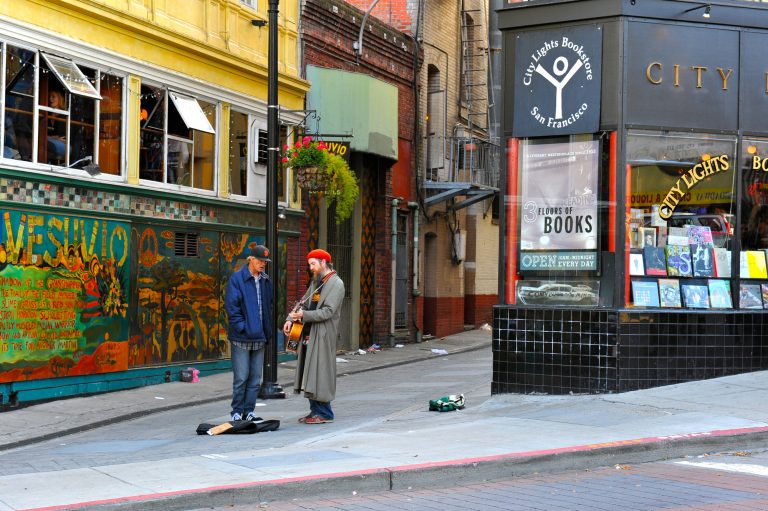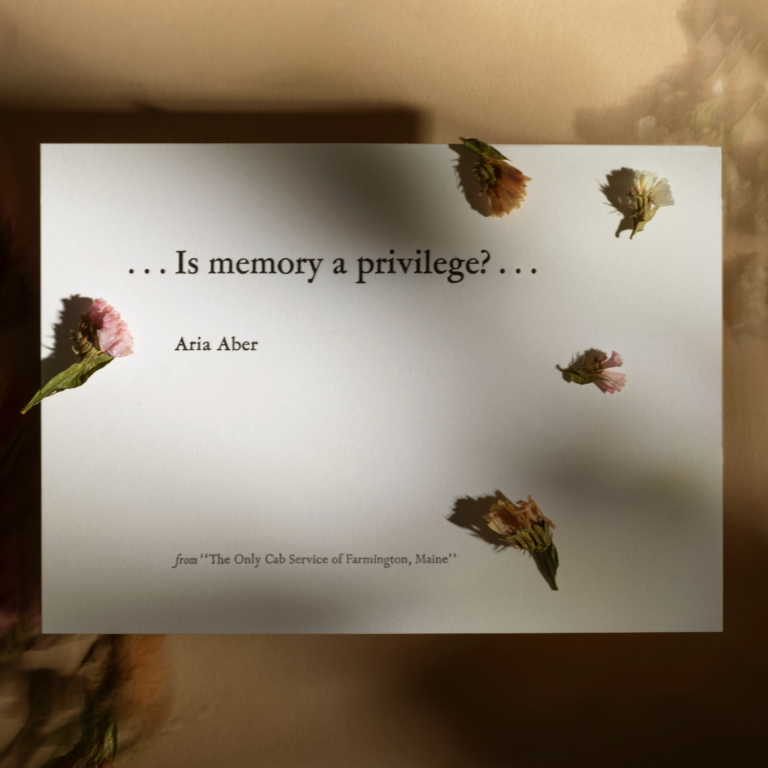
Image by Class V/Flickr, Attribution-ShareAlike.
We Speak of Our Humanity in the Same Tongue
As a grad student at U.C. Berkeley in the mid ‘60s, I loved the City Lights Bookstore in San Francisco. A decade earlier, luminaries of the Beat Generation — Lawrence Ferlinghetti, Allen Ginsberg, Jack Kerouac, Kenneth Rexroth and others — hung out there, wrote and read groundbreaking poetry, and left a creative vibe you can feel to this day.
From the mid ‘70s to the mid ‘80s, I lived and worked near Philadelphia. Now and then I’d take a break by spending a few days on the Jersey Shore, even in mid-winter. This poem began there on a cold January morning as I recalled the cultural vibe of the Bay Area — and of Big Sur on the central California coast, another Beat hangout — and compared it to what I was hearing in a New Jersey dive called Lucille’s Cafe.
The surface differences were striking, but I was even more struck by our deep-down shared humanity.
The Jersey Shore
Ferlinghetti wrote his poems
at City Lights Bookstore
in San Francisco, hipster by the Bay,
while I write over coffee
on the cold New Jersey shore,
next door to the Shop ‘n Bag
at Lucille’s Cafe.
Ferlinghetti and his friends
talked Marcel Proust and Sartre.
Here, football and fishing are
things closer to the heart.
But at Lucille’s they also speak
of friends who died too young,
of work and its frustrations
and it’s really the same tongue—
existentialism, with a few less complications.
Lucille’s accents are tender
underneath the Jersey tough,
and sitting here I see that
Big Sur culture’s not enough
to raise up all the poems we need
to speak to all the hearts
of how things come together
and of how things fall apart.
This poem is reprinted with permission.
Listen to Parker Palmer’s On Being interview, “Repossessing Virtue: Economic Crisis, Morality, and Meaning.”


Share your reflection